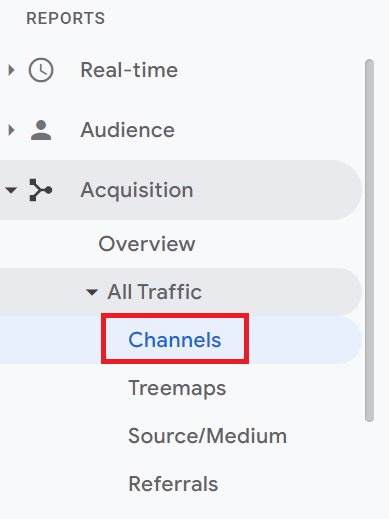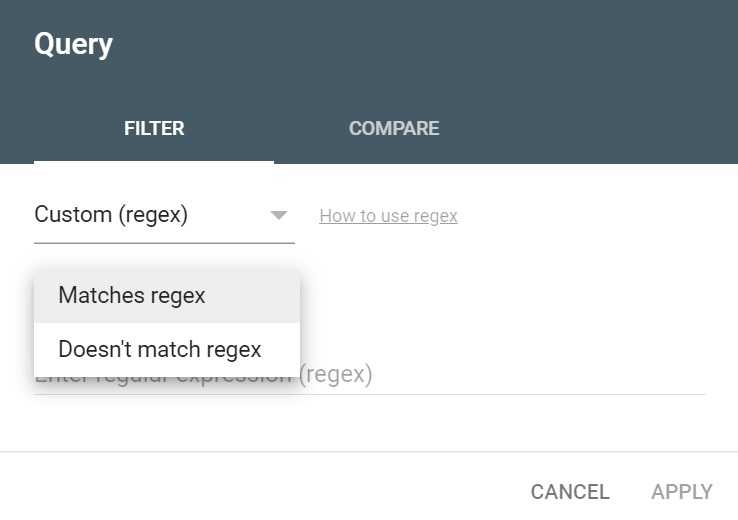The Most Important SEO KPIs to Track
Here is a make-or-break question for you.
“Do you know how much organic traffic your website drives a month, or how many organic conversions your site gets in that time?”
Is your answer no? It’s time to step back and reevaluate your organic search strategy. We can’t stress how important it is that you track the key performance indicators (KPIs) we’ve listed below.
Are you investing a set amount of hours or days into implementing SEO, or have you hired an SEO specialist to do it for you? You need to make sure you see a return on investment. Otherwise, how do you prove your money isn’t going to waste?
Is your answer yes? That is a great start! But we have a whole list of 10 SEO KPIs if you want to get into the nitty-gritty details.
Before we explain, you need to get set up on the following. You can sign up for these tools for free or a small monthly charge.
- Google Analytics
- Google Search Console
- Keyword tracking tools
So, where do you start?
What are the most important SEO KPIs to track?
These are the 10 SEO KPIs you must track to justify your SEO and prove it is successfully working to make you more money.
10 SEO KPIs
- Conversions
- Historical organic sessions
- Keyword rankings
- Impressions
- Domain rating
- Backlinks
- Clickthrough rate
- Bounce rate
- Time spent on page
- Scroll depth
They are in order of importance. The first 5 are the most important. So we will explain what you should know, how to track the KPI, and why. The other half is more of an interesting bonus to be clued up about.
For example, you can’t run an SEO campaign without knowing if you are getting traffic or conversions. Are you tight for time, busy running your business? Those are the must-have figures. Do you want to know how long people spend on a product page? Are you interested in how your bounce rate compares to the industry average? Those are nice to know numbers.
1. Conversions
Conversions are the most important SEO KPI you need to track. You might get millions of organic sessions every month to your optimised website. But you’ll never know if anyone spent any money or sent you an enquiry.
Decide which type of goal you want to track. Then set it up in Google Analytics. Be sure to set it up in GA4, as the current GA (or Universal Analytics, as it’s also known) is officially ending in July 2023.
If your website is an e-commerce site, set up e-commerce tracking. If you have a lead generation website, create the following goals.
- Goal 1 – Phone call
- Goal 2 – Email clicked
- Goal 3 – Form fill submission
Why should you track organic conversions?
You should track organic conversions so you can attribute how many leads or how much revenue you’re making from organic searches.
2. Historical organic sessions
Track your organic sessions. Log in to Google Analytics and follow these instructions.
- Go to Acquisition
- Go to All Traffic
- Select Channels
- Click ‘All Users’ and set it to ‘Organic’*
- Set your date on the right-hand side to be monthly or yearly, or customise it
*Otherwise, you’re including other types of traffic, such as referrals and paid search.

Can you only look at monthly sessions?
You mustn’t judge your entire SEO campaign on a month-by-month basis. For example, if you run a sale or the previous month had more calendar days, this will cause a significant change in sales.
Equally, seasonality will affect your SEO. It’s another reason you should measure performance from a historical angle. For example, compare the last year to the previous year’s performance. Go back even further if the pandemic impacted your business.
Why should you track organic sessions?
You should track organic sessions historically because it will give you a true reflection of how your website’s traffic is growing, outside of the seasonality patterns that the monthly traffic will give you.
Make annotations in GA because you can attribute exactly when SEO work was done and the direct impact it had on your traffic.
3. Keyword rankings
Once you’ve done your keyword research, group and prioritise. Then, report on their performance as a cluster. That way, you won’t panic over an apparent drop to find that one low-priority keyword has completely skewed your report.
Make life easy and cluster the priority keywords for your website’s commercial intent pages. By commercial intent, we mean don’t become fixated on the secondary keyword for a low-converting blog. Ensure the most relevant keywords for your product or service pages are steadily performing because that will directly impact your organic revenue.
Create yourself an ‘at a glance’ view of all of your historic keyword movement. Then, you can see very quickly how many keyword improvements you’ve had since SEO started.
Why should you track keyword rankings?
You can see whether your keyword rankings have improved or not 6 to 12 months after the SEO work started. Have they worked their way up the Google listings by hundreds or thousands of positions, dropped or maintained? That will indicate if your keyword strategy is working.
4. Impressions
Never rely on Google Analytics as your only SEO KPI to track. That’s because the organic sessions in Google Analytics will include brand name searches.
For example, let’s say someone searches for your exact brand name in Google, and clicks through to your organic listing. It is organic because the person hasn’t clicked on the paid advert. But they’ve specifically searched for your brand, so they already know your brand.
You can use Google Search Console to see impressions and clicks of a term. You can manually filter out any brand terms by clicking ‘regex’, and selecting ‘doesn’t match’.

That view shows you the change in non-brand, organic impressions and clicks. Impressions are how many times your organic website listing has been seen in the results, and clicks are how many times someone has made that click on your listing.
Why should you track impressions?
You should track impressions because the data will tell you if your keyword optimisation has directly boosted your pages in the SERPs, even if you’re not getting clicks yet.
5. Domain rating
A keyword tool like Ahrefs or SEM Rush can give you a historical overview of how your domain rating has changed over time. Your domain rating is a term coined by Ahrefs, where you can score between 0 and 100. The term is thrown around in the SEO industry, just like domain authority is.
What is domain rating? It can be a strong indicator of how successful your SEO campaign is. We hear people in the SEO industry explain that your domain authority tells you how strong your backlink profile is. They’re not wrong, but there is a bigger picture.
Google wants to rank helpful, engaging, authoritative websites that are quick and easy to navigate. That’s official, as part of the E-A-T update, which Google started talking about in 2019 before the ‘Helpful Content Update’ was introduced in 2022. Google E-A-T stands for “Expertise, Authoritativeness and Trustworthiness”
How does this affect domain rating? Why should you track it?
The domain authority or rating score questions how authoritative and helpful your website is. It links hand in hand with content quality.
It might be at a steady rate. It might only change by a few points over a few months. Tracking your organic traffic or conversions is more important than your domain authority.
However, keeping an eye on it historically will indicate how your SEO is going. If there is a sudden or steady decline, something could be wrong. You might want to check your keyword rankings. Ensure you check your backlinks. Have you gained any spammy links from other domains? Disavow those via Google’s disavow tool.
How to write SEO-friendly, E-A-T-approved content
Do you want quality, engaging content on your website? Do you not have the time to research and write it yourself?
You are in the right place. We produce all sorts of rank-worthy content for clients globally, including authoritative travel content, product pages and affiliate content. We have experienced writers across the world, and we only hire the best writers. So we can offer professional content writing services that get you tangible results.
